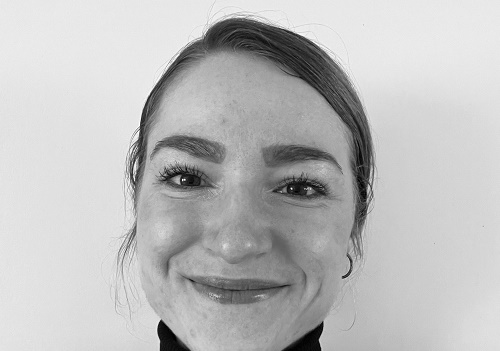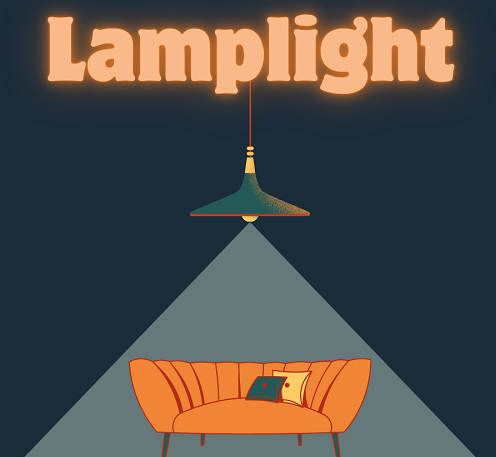Author, speaker, researcher, mental health advocate and activist, Mikaela Brewer is passionate about exploring the intersection of science and storytelling as it relates to mental health. But her resume runs even deeper. Brewer played basketball for Team Canada and Stanford University where she graduated with a B.S. in Human Biology, minor in Creative Writing, and a Notation in Science Communication in 2020.
As a multi-disciplinary writer & researcher, Brewer has published poetry, fiction – and more – for a variety of platforms. In 2021, she co-founded Timeout Software, a digital mental health platform for athletes and also leads the Lamplight Project, an initiative aimed at shining light on the mental health journeys and experiences of mental health practitioners.
We spoke with Brewer about her personal and career trajectory, her passion for mental health, what inspired her current pursuits, and what she’s learned along the way.
Tell us about you and how your background influenced your focus today
Hello! My name is Mikaela Brewer, and I’m a multi-disciplinary published poet, writer, speaker, and researcher. At Stanford University, I studied human biology (brain, behaviour, and mental health) and creative writing, and earned a notation in science communication. Until 2020, I played basketball for the Canadian National Team & Stanford University. For most of my life, I thought I’d be a doctor and play professional basketball; I competed alongside many of the incredible women on the Canadian Olympic Team in Paris this past summer.
However, like all of us at some point, I was caught unprepared to consider the multiverse of my life—which direction could it follow and where was I was most capable of taking it? During the past ten or so years, I’ve attempted suicide twice and lost two friends and my therapist to suicide. Suicide—conceptually, experientially, and spiritually—has touched me deeply.
I retired from basketball and gradually leaned into my creative writing minor more and more until I was writing and editing full-time. My writing career began and was framed by sharing my story while advocating for student-athlete mental health. Although this is where much of my experience lies, I’ve shifted my focus to suicide prevention research, advocacy, and writing more broadly, specifically through lenses outside of the medical/mental health industrial complex. Believing that my most purposeful and powerful contribution is my writing and editing ability, I’ve fully leaned into these skills within the past few years. My work, now, often braids suicide prevention with poetry, language, storytelling, fiction, voice, and music.
Aside from work, I also love talking about music, horses, cooking, dragons, nature/plants, distance running, and reading/books! These show up as images, metaphors, motifs, and symbols in my writing all the time.
What inspired you to launch Lamplight?
Ultimately, Lamplight began as a raw letter to my therapist after he died. As I’ve grown and gradually become more of myself since 2020, so has Lamplight—from letters to a YouTube conversation series, to a virtual event, and now to a magazine with accompanying webinars and videos. A single lamp can light up an entire room, not just one corner of it.
Though I’m not a mental health care provider, Lamplight has been a five-year practice of love, blending my lived experience, academic knowledge, and writing/editing skills. For mental health care providers, finding destigmatized, safe people and places to discuss their mental health experiences can be challenging. The Lamplight Project, a part of which is Lamplight Magazine, is a creative and interactive publication spotlighting the mental health experiences of mental health care providers. My goal is to be a vehicle and gateway for decolonizing mental health care for our mental health care providers (to use an umbrella term that includes many roles).
How does Lamplight meet its mission?
Lamplight Magazine welcomes photo essays, written essays/stories, paintings, short stories, poems, illustrations, collages, spoken word, video, audio, digital art, comic strips, letters, conversations, or interviews. Our upcoming issue will specifically explore the experiences of peer support workers and students in mental healthcare programs (including reflections on time as a student, teacher, or in training).
Care sessions can be as vulnerable for mental health care providers as they are for clients. So much coexists in these spaces: client-centred skills, tools, and training alongside normal and healthy empathetic responses to the experiences that providers hold and create space for. Skill isn’t cancelled out by emotion, and you’re not failing if you feel or express appropriate and human emotional responses. You’re also not failing if you struggle with your mental health as a mental health care provider.
No one is immune; all humans are sensory beings, and everyone needs a safe place to process, share, and release experiences stored in the body. Importantly, as part of safety, I try to ground Lamplight in the fact that mental health care—past, present, and future—is not apolitical. Everything is political and always has been. The text I refer to for this work, nearly daily, is Decolonizing Therapy by Dr. Jennifer Mullan. I highly recommend it. I also frequently sit with this blog post by Dr. Ayesha Kahn and Stefanie Lyn Kaufman-Mthimkhulu’s Healing Outside the MIC curation.
Why is this initiative important – why now? What gaps is it meant to fill?
We recently filmed a webinar on the mental health challenges faced by mental health care providers and researchers in academic and professional settings. I’d love to defer to the insightful perspectives of our panelists: Désirée Jones (Clinical Operations Director at The Shift Collab), Dr. Chika Oriuwa (psychiatry resident, award-winning poet, author, speaker, and thought leader in organizational wellness & equity), and Rosiel Elwyn (PhD Candidate, MProfPsych, BSocSci (Psych) (Hons), Lived Experience Researcher & mental health consultant @ Thompson Institute, University of the Sunshine Coast).
The webinar was inspired by Rosiel Elwyn’s paper, Fear of the Impaired Practitioner, Mandatory Reporting, and Clinician Suicide: A Lived Experience of Fitness to Practice Investigation as a Student, which not only spotlights systemic barriers but offers a clear vision for a collective-care-oriented field.
There is a vital need to discuss the invasiveness of mandatory reporting practices, decolonize what we mean by “lived experience”, and understand the disabling environments embedded within academia. Mental health care providers are frequently expected to heal in isolation—alone in a system that prioritizes individual self-care over collective care. Mental health care is a group project. Here are two video recaps from the webinar, featuring direct quotes on the themes above:
Any lessons you’ve learned trying to run a social impact initiative?
Truthfully, I’ve found being with people is most important, particularly when they’re asked to create—in any medium—from their lived experiences as source material. As an editor, I try to show up fully rather than hierarchically. I think of my emails as letters. I set up calls with contributors to be as present in their process as possible (or as present as they’d like me to be!). I post emojis, affirmations, and sometimes jokes/memes on edits, feedback, emails, and thank you messages. A smiley face in an email! Gasp! I don’t think it’s a Gen Z thing. It’s not unprofessional. I think it’s an intentionality thing. As we walk through immeasurable pain together—exacerbated right now—how bold to show up with just joy’s petals, if not its full flower?
Finally, I try to live by these words from a longer quote by Dr. Raquel Martin: “ensure your space is safe, not silent.” I try to ask myself, consistently, how I’m explicitly embodying and stating this.
Where do you hope Lamplight will be in 5/10 years?
In 5-10 years, perhaps Lamplight will expand into a small press with funding to produce not only the magazine but memoirs. In addition, I hope it will become a comprehensive gateway to a collection of resources and peer support opportunities that reimagine mental healthcare for mental health care providers, including somatic, mental, and spiritual support that doesn’t focus solely on intellectualizing and verbalizing. There is much more to come!
Lamplight is currently accepting submissions. Details are here


